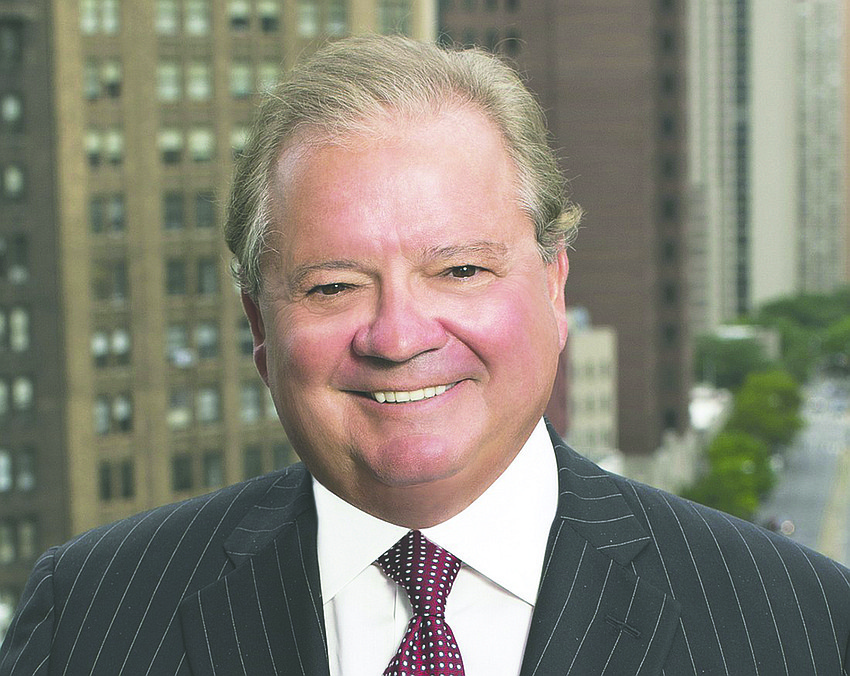

Engulfed by disheartening, worrisome news coming at us from all directions, it may be hard for Jacksonville University College of Law students to focus as they prepare for final exams and for any of us to keep working through the daily grind.
It is tempting to ask: What’s the point?
The world around us is crumbling like there will be no tomorrow and the tough predicaments of our time seem hopeless. Why bother?
It helps to realize that the world never has been perfect, and it never will be.
As always, what we can learn and do, especially as aspiring lawyers and members of our honorable profession, can be used to make the world a different, better place and to contribute to the steady rising arc of progress.
It also helps to realize that the work of changing bad things is never done. Each of us is not required to finish the job or win the good fight, yet neither should we refrain from taking on the challenge.
After all, lawyering is not just about doing well. It’s also about doing good and it’s about much more than winning and losing.
Responsibilities come with the privilege of a legally trained mind. Legal education opens countless worthwhile careers and opportunities.
It also empowers lawyers to serve the common good, pursue equal justice and advance the well-being of our communities and the world around us.
It is understandable if we, in the legal profession and the public, lose sight of the good that lawyers can, should and must do.
With all the attention paid to recent controversies regarding lawyer and law school faculty salaries and frequent questions about why attorneys are defendants in recent high-visibility cases, it is more important now than ever for legal professionals to impress upon new lawyers the necessity for ethics and professionalism.
When a lawyer acts in accordance with their ethical code and rules for professional conduct, they may work on legal matters on behalf of rich and poor individuals, or private and public organizations large and small.
We also provide affordable, quality legal services to our communities, as well as spending a significant amount of time working for free.
It is not easy work and is not for everyone.
For those who have the ability, creativity and dedication to become lawyers, it can be extremely satisfying work, even though it often may involve being on the losing side or taking on seemingly “hopeless” cases.
However, by prioritizing professionalism and ethics, a good lawyer advances justice and fairness both when they win and when they do not.
Increasingly, people distrust all three branches of government at the federal and state levels and other institutions of our constitutional democracy.
For example, many people are wondering why the U.S. Supreme Court justices are not subject to enforceable ethics rules and why they seem to be driven by political agendas rather than law. Sadly, the reputation of the once-revered court has sunk to a troubling historic low. At this writing, in response to withering criticism from the public and legal profession, the court issued a narrow ethics code lacking any enforcement provision.
Meanwhile, some lawyers are making negative headlines, including those entangled in the criminal cases of Donald J. Trump. While those who have not pleaded guilty are still entitled to the presumption of innocence, their own reputations have been tarnished. They also have undermined the confidence of the public in the legal system.
The truth is that unethical lawyers are the outliers among the 1.3 million who are active members of the profession in the U.S., including the 112,000 members of The Florida Bar.
Recent cases of alleged attorney misdeeds actually are examples of the self-correcting system working because they spotlight alleged misconduct and crimes and enforcement of rules to hold wrongdoers accountable.
In a sense, these atypical cases, even the recent spate of unprecedented Trump-related proceedings, increase awareness of the line dividing ethical and unethical conduct, the proper standards of our profession, the value of what is right and what is wrong and the consequences of lawyers failing to uphold their professional responsibilities.
Fortunately, there is a great deal that law schools can and are doing to make a positive difference.
At the JU College of Law we emphasize the primacy of not just knowing how to practice law, but the professionalism, ethics and values necessary for lawyers serving others in the public interest.
Even before classes begin in orientation week, and then regularly throughout every semester, our students hear about and meet Jacksonville judges and practicing lawyers whose careers embody the aspirations of our honorable profession to maintain the highest standards for their work, integrity and contributions to the public good.
Our law students can be motivated to know that what they are studying can be put to good use in making a positive difference.
Across America and throughout the world, people are fighting over nothing less than the future of democracy and of humanity.
We are involved in historic battles over justice, freedom, equality, globalism, peace and the environment.
Students need not feel overwhelmed. No one person needs to do all the good that the world needs, but the world needs each of us to do all the good we can do.
Each of us may only be able to throw a pebble into the pool of the world’s problems to create a ripple of hope, yet if enough of us throw our pebbles, our ripples will combine to create waves that will one day overcome and sweep away even the largest, most stubborn problems and change the world.